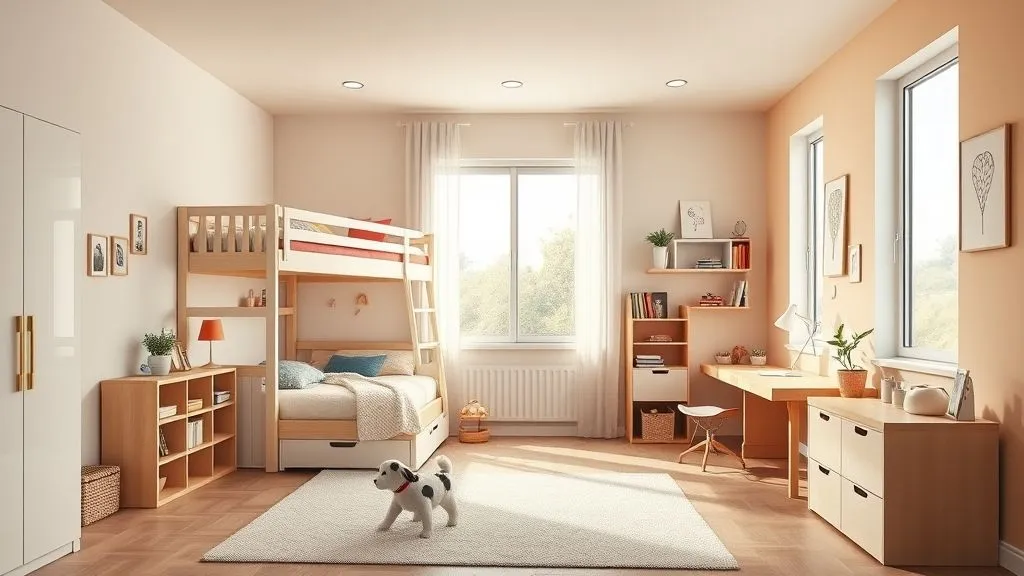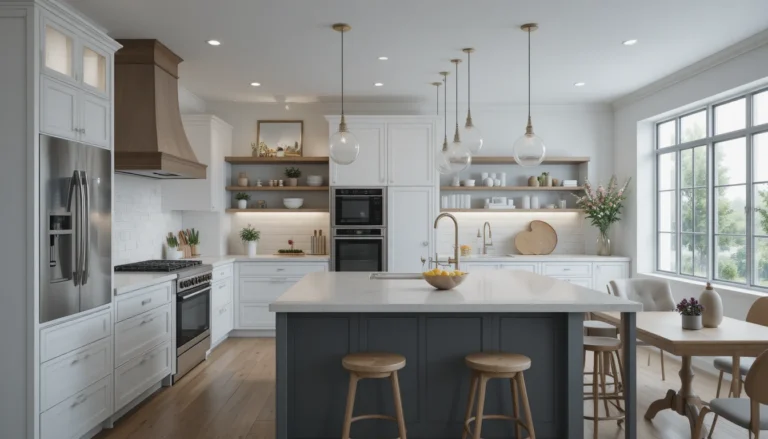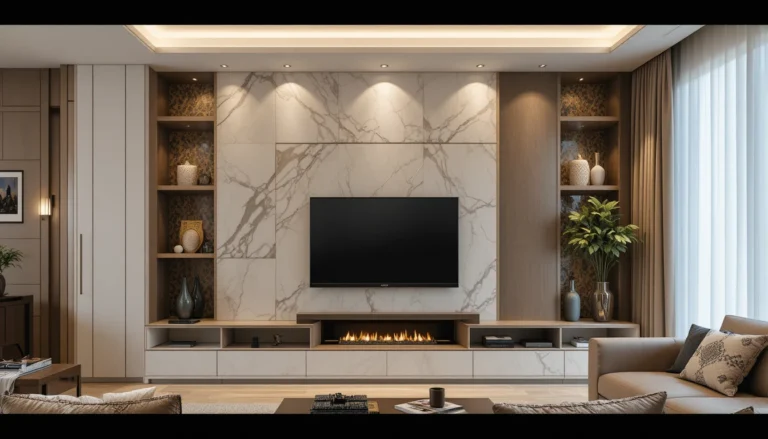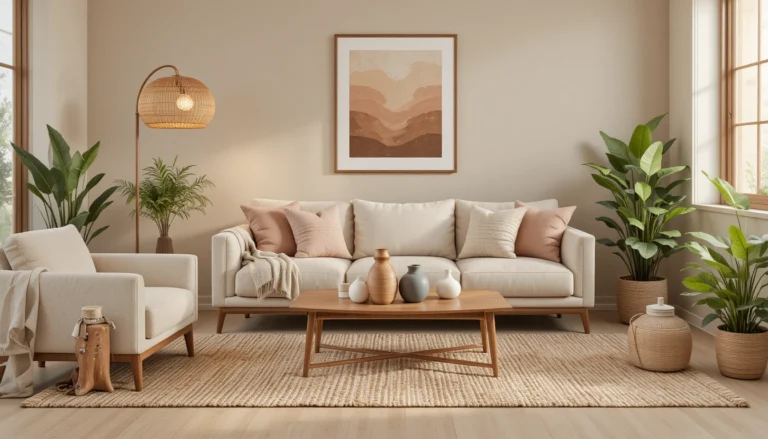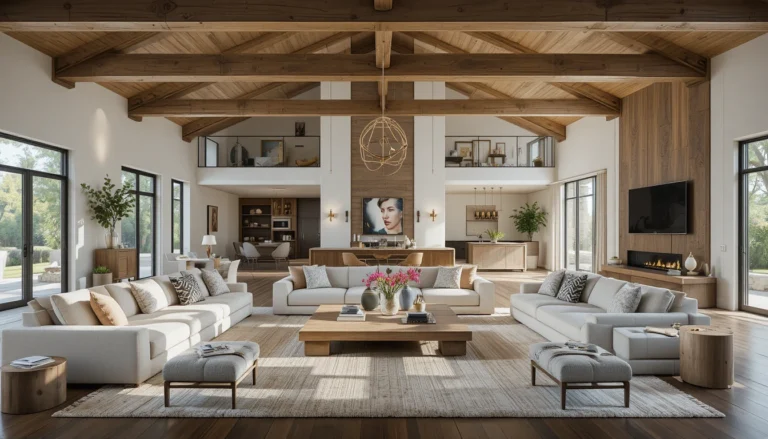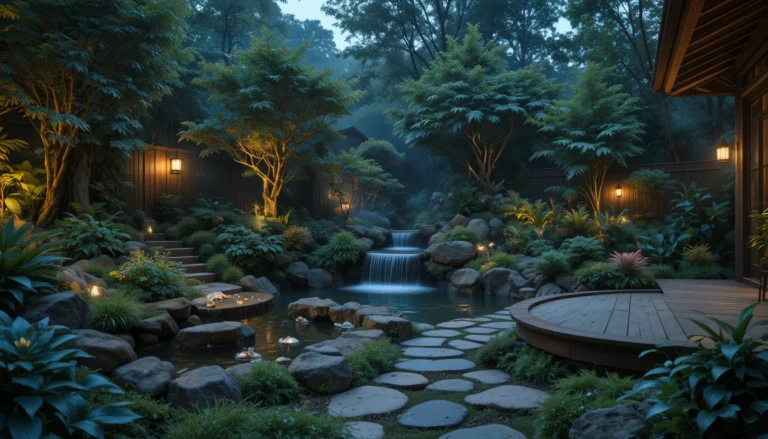Modern Kids Room Design Ideas
Designing a kids’ room is about blending creativity, functionality, and comfort. From color palettes to smart storage, each detail helps create a space where your child can learn, play, and dream. Here are 20 inspiring kids’ room design ideas to help you create a fun, stylish, and practical space your child will love.
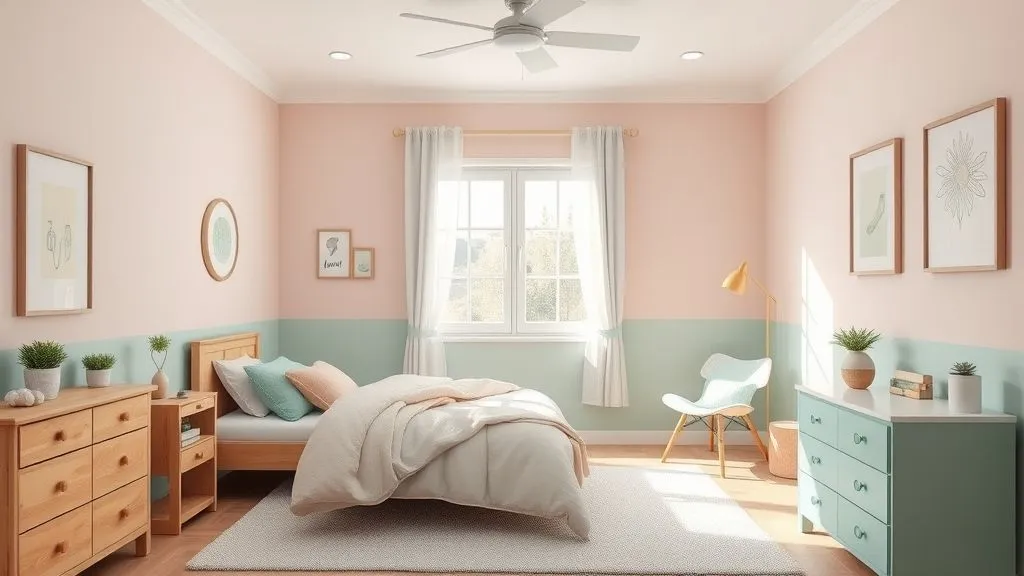
Soft Pastel Palette for Calm Spaces
Soft pastel colors like blush pink, mint green, and baby blue create a soothing environment. These shades work well for both nurseries and older kids, making the room feel light and relaxing while still playful.
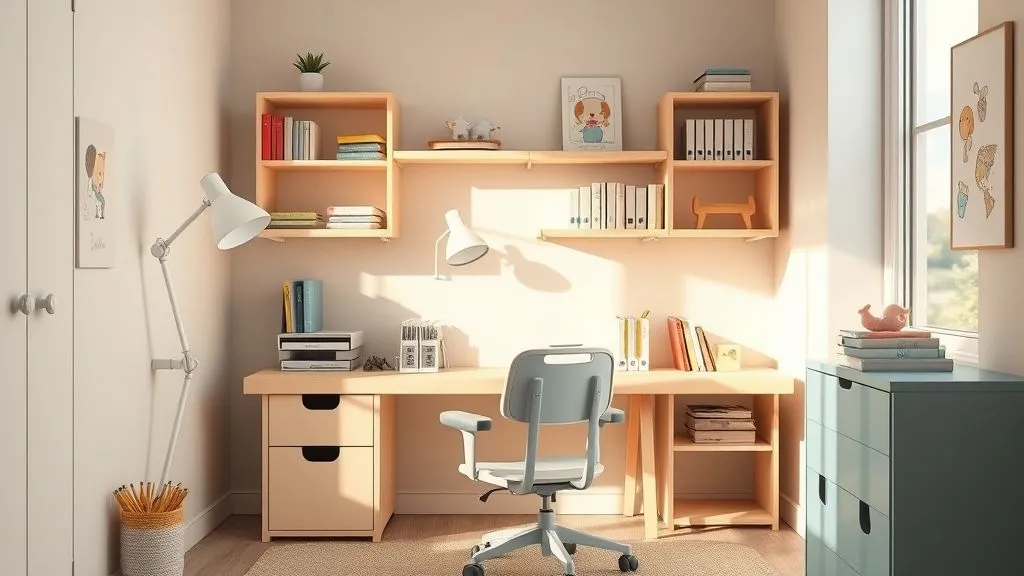
Functional Study Corner
Incorporate a dedicated study area with a child-sized desk and ergonomic chair. Add floating shelves for books, colorful organizers, and good lighting to encourage focus and creativity during homework or art projects.
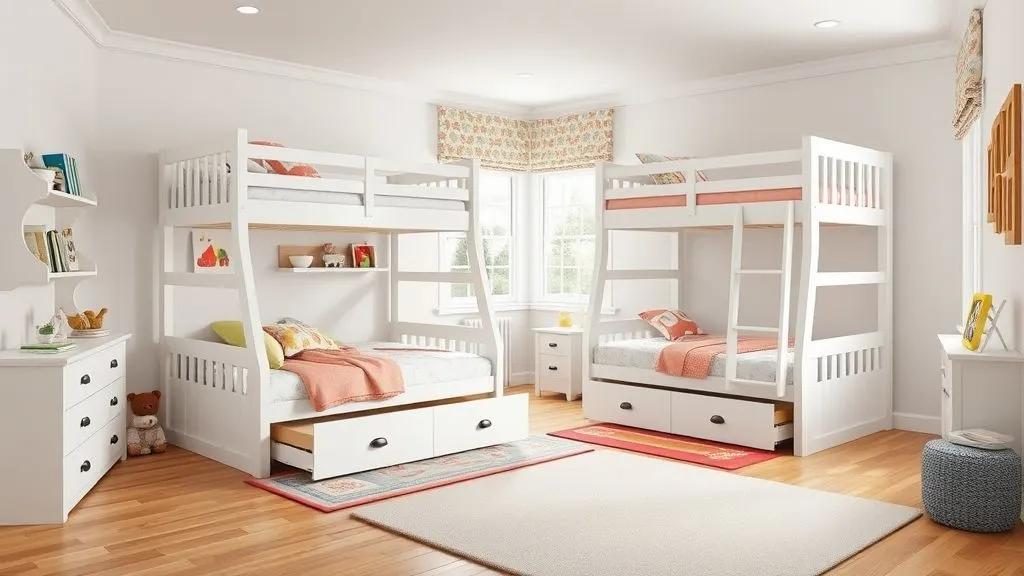
Bunk Beds with Storage Drawers
Bunk beds save space and add an element of fun. Choose designs with built-in drawers or side shelves for toys and clothes, combining storage efficiency with cozy sleeping arrangements.
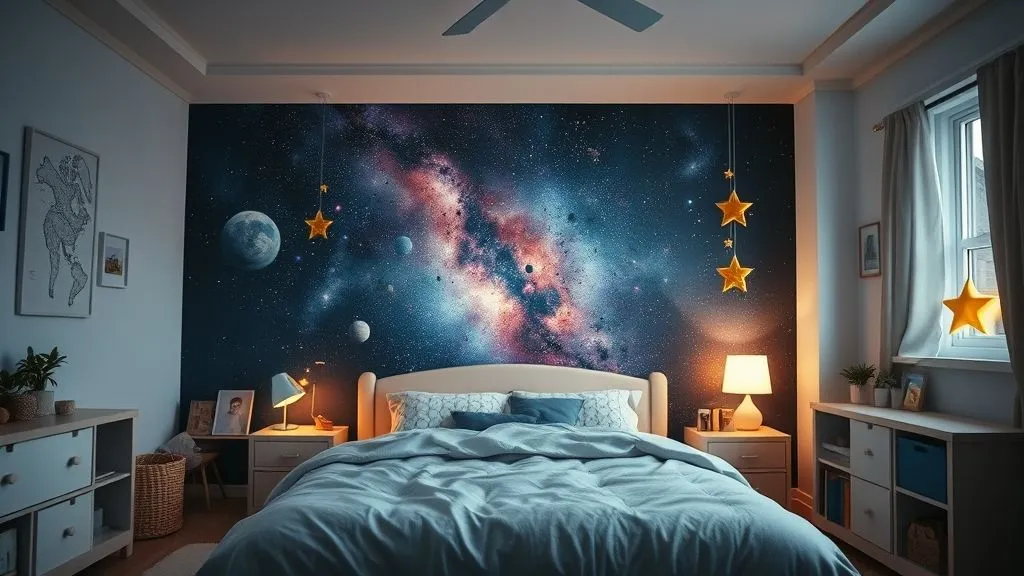
Creative Wall Murals
Painted or wallpapered murals instantly transform a room. Opt for nature themes, galaxies, or favorite cartoon characters to spark imagination. For versatility, try removable wall decals that can evolve with your child’s interests.
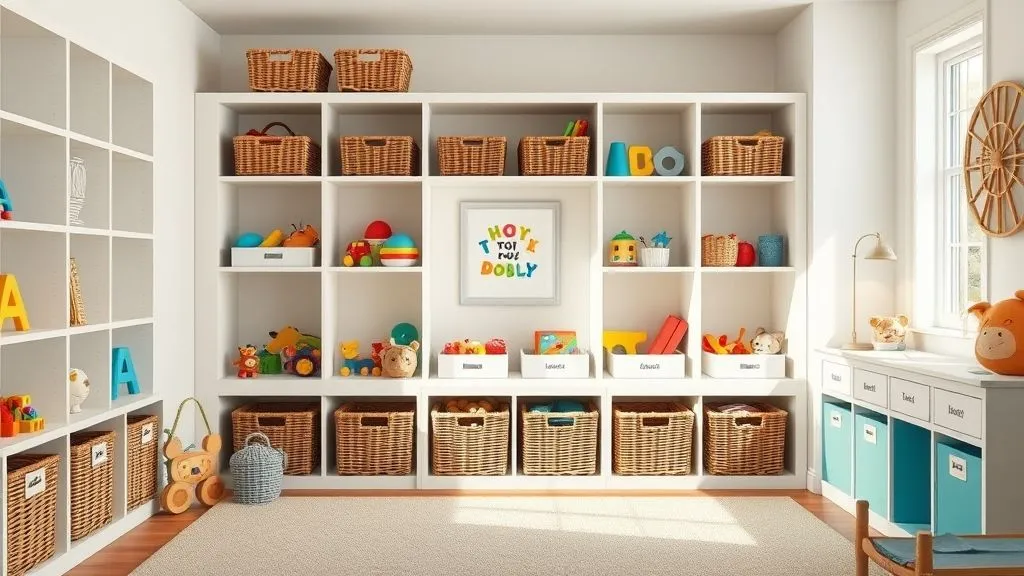
Smart Toy Storage Solutions
Use labeled bins, wicker baskets, or wall-mounted cubbies to organize toys. Open storage encourages kids to participate in cleanup while keeping the room neat and functional.
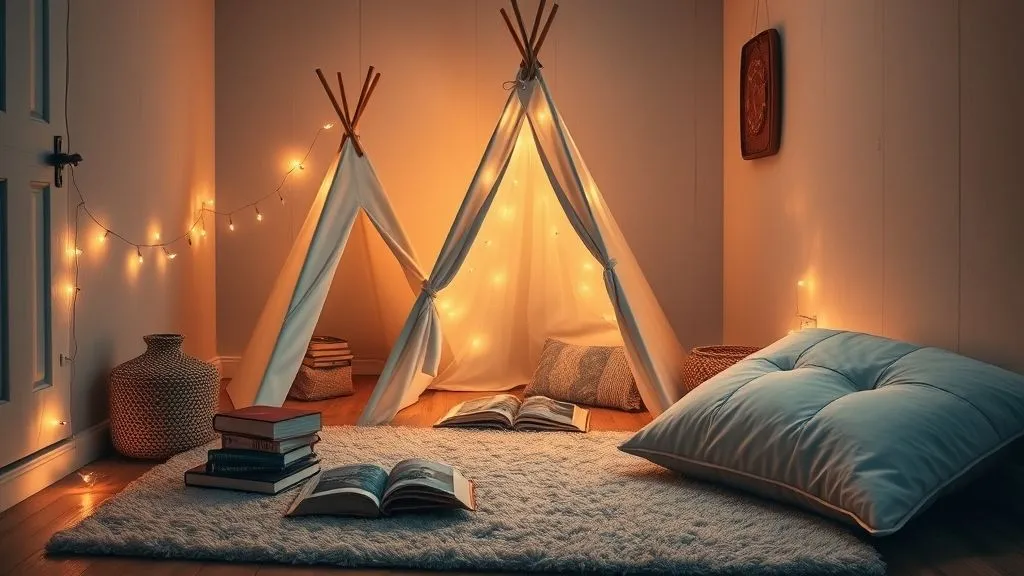
Play Tent or Reading Nook
Create a special corner with a soft rug, fairy lights, and floor cushions. A cozy reading nook or play tent gives children a sense of independence while providing a quiet escape.
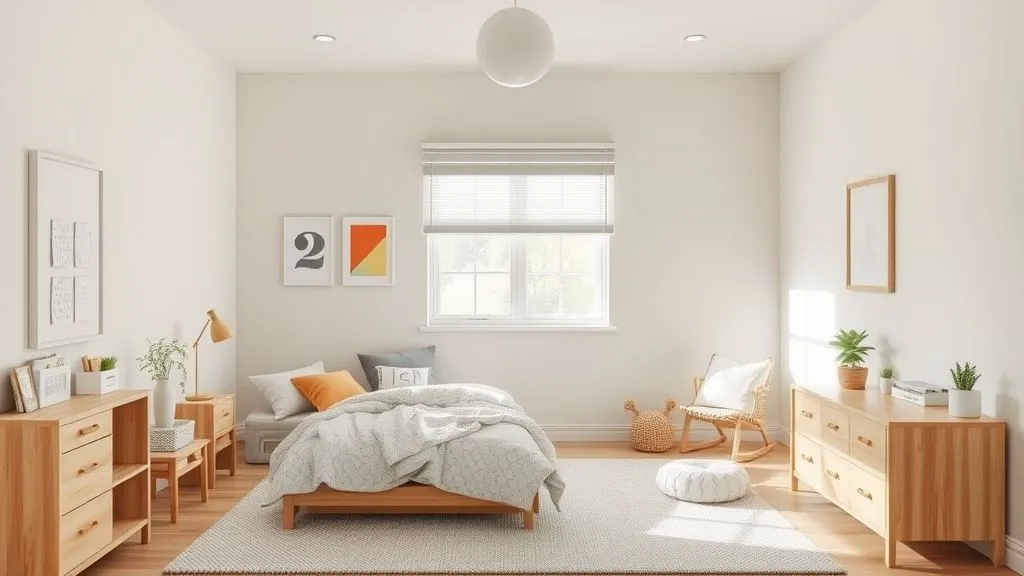
Gender-Neutral Room Design
Neutral tones like beige, gray, and white paired with colorful accents allow flexibility as your child grows. Add pops of color through bedding, rugs, and wall art to keep the space lively.
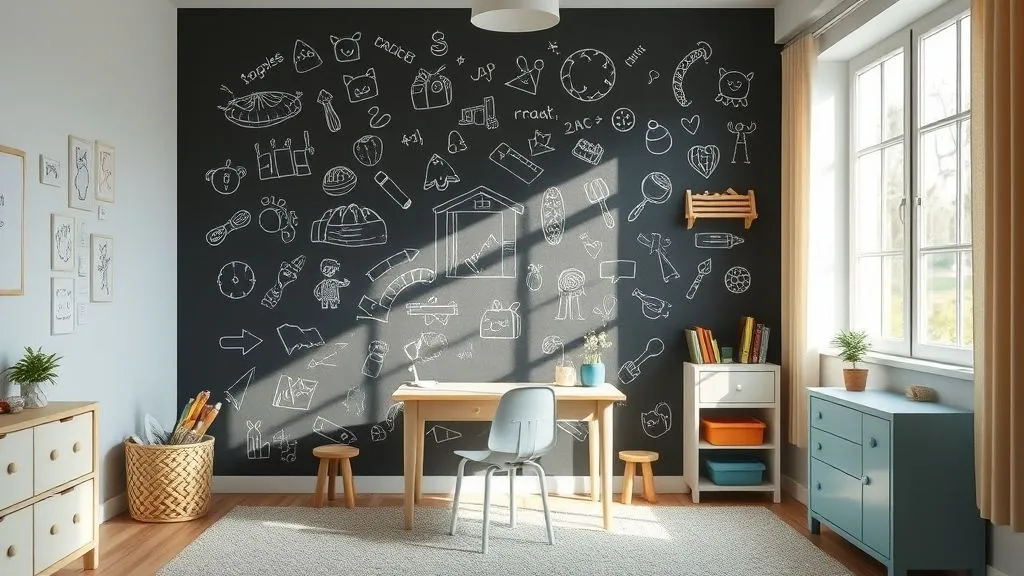
Interactive Chalkboard or Whiteboard Wall
Turn one wall into a writable surface for doodles, math practice, or creative storytelling. It’s a great way to blend play and learning while keeping the room’s design interactive.
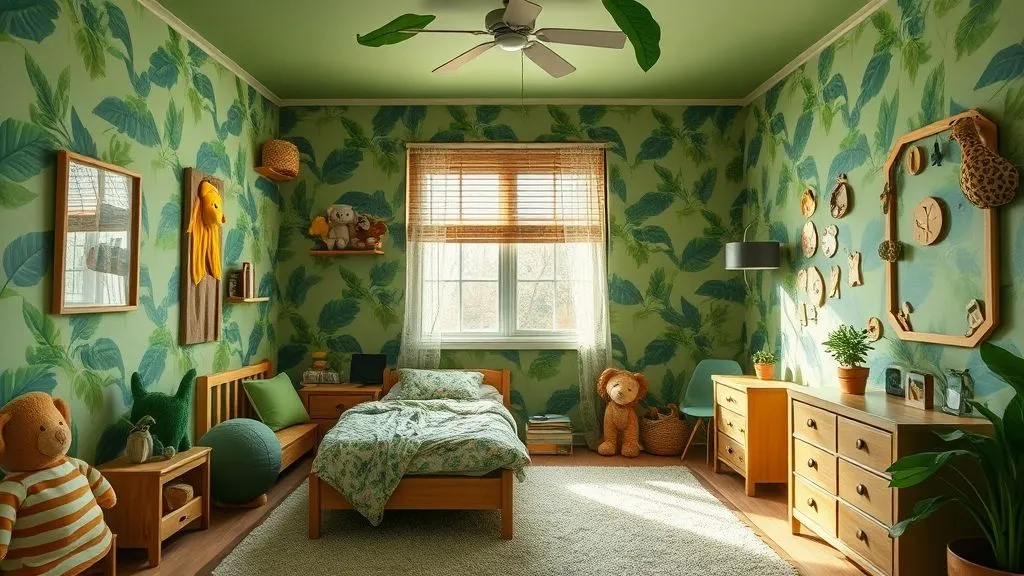
Themed Decor for Personality
Choose a theme your child loves — from outer space to jungle safari or ocean adventures. Coordinate the bedding, art, and accessories for a cohesive look that feels personalized.
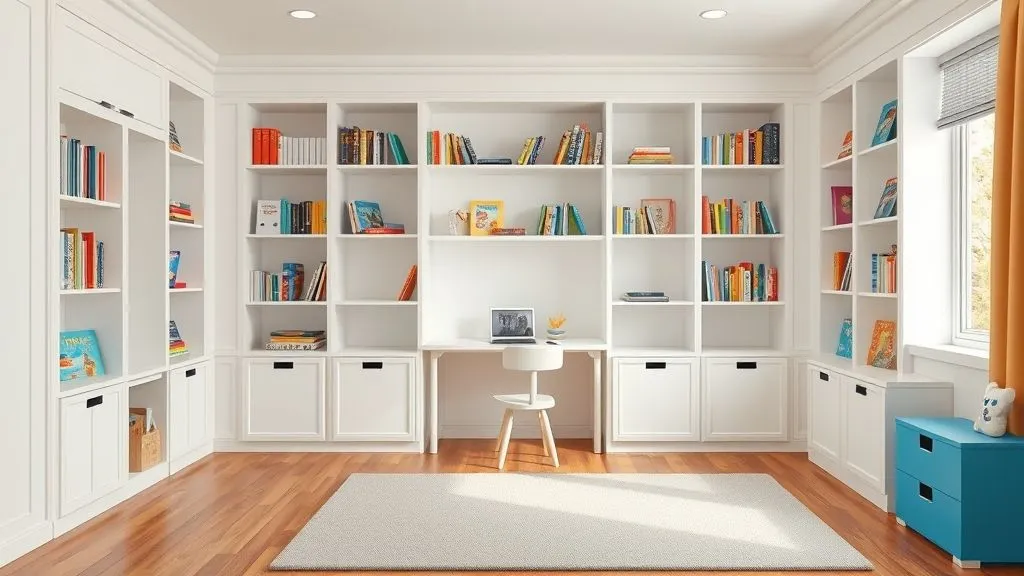
Built-In Bookshelves
Built-in shelves make book storage elegant and practical. They also encourage reading habits by keeping favorite titles within easy reach. Add decorative touches like small plants or toys for visual interest.
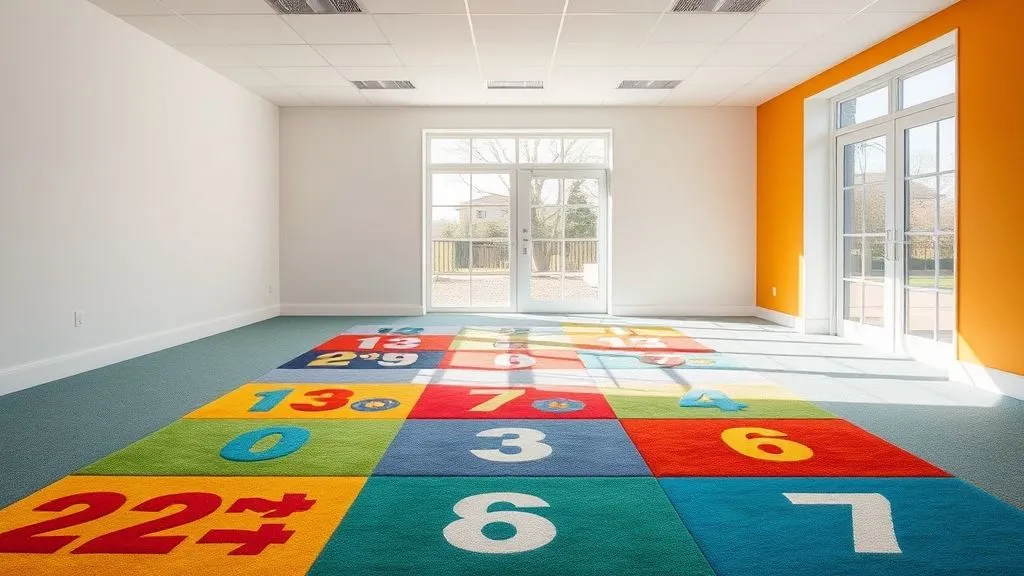
Colorful Rugs and Floor Mats
A soft, patterned rug adds warmth and character to the room. Opt for washable options in bold patterns or educational designs like numbers or alphabets for dual functionality.
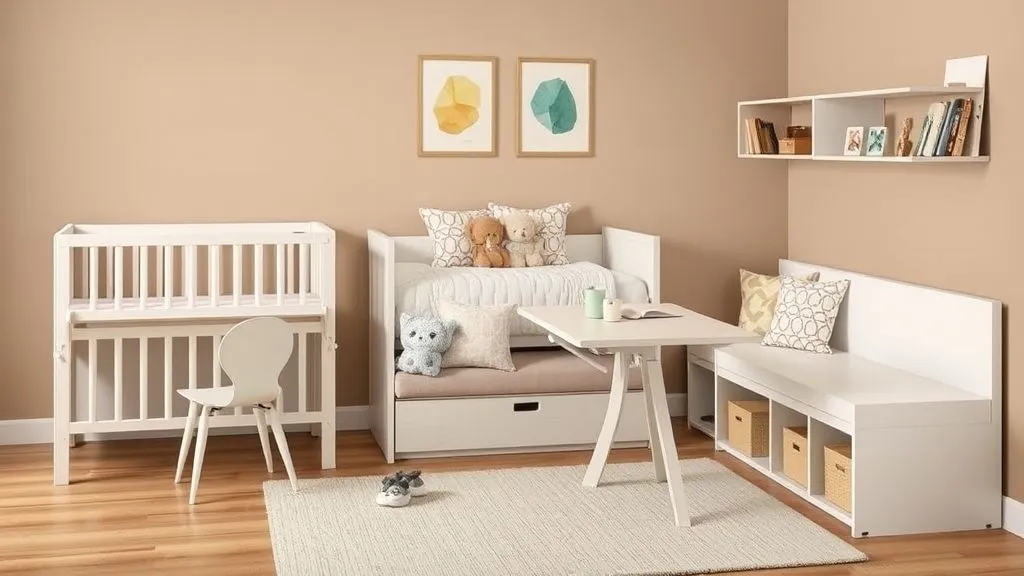
Multi-Functional Furniture
Select furniture that grows with your child, such as convertible cribs, extendable desks, or storage benches. These pieces save space and adapt to your child’s changing needs.
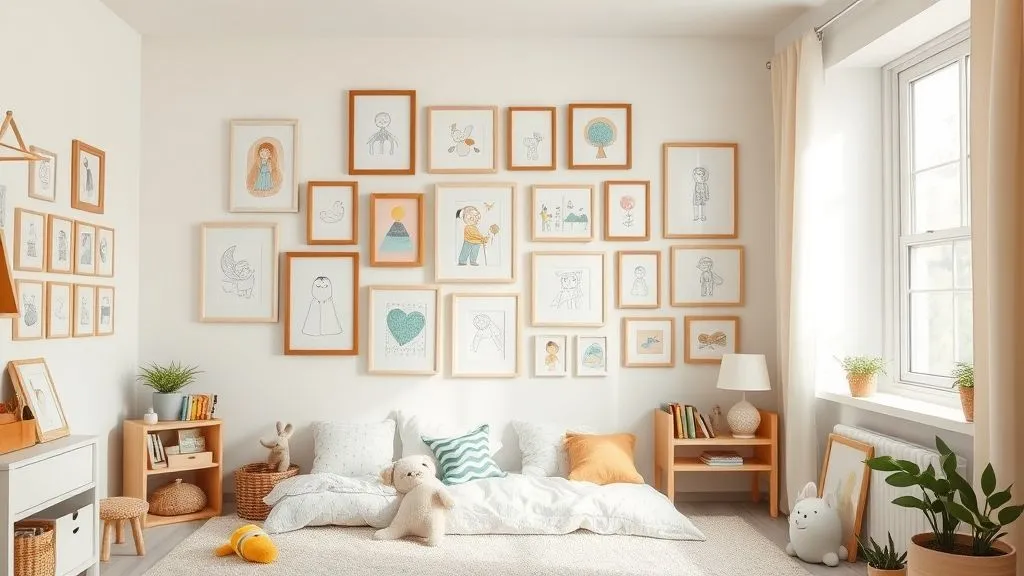
Gallery Wall of Artwork
Display your child’s drawings or framed art prints to celebrate their creativity. Mix frames and sizes for a charming gallery wall that adds personality and pride to the room.
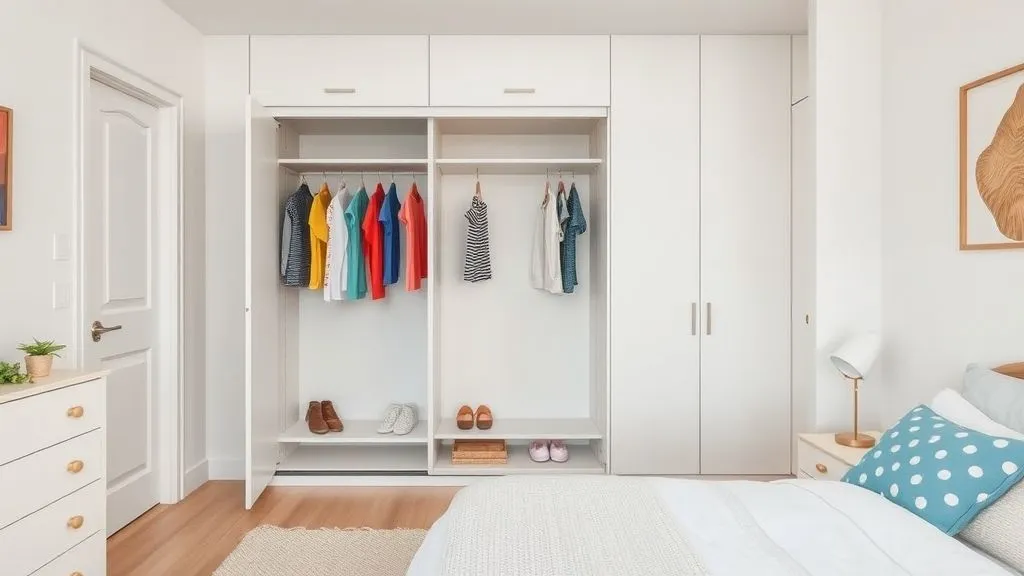
Open Closet System
An open closet makes it easier for kids to pick outfits and stay organized. Use low rods, baskets, and color-coded hangers to make the process fun and manageable.
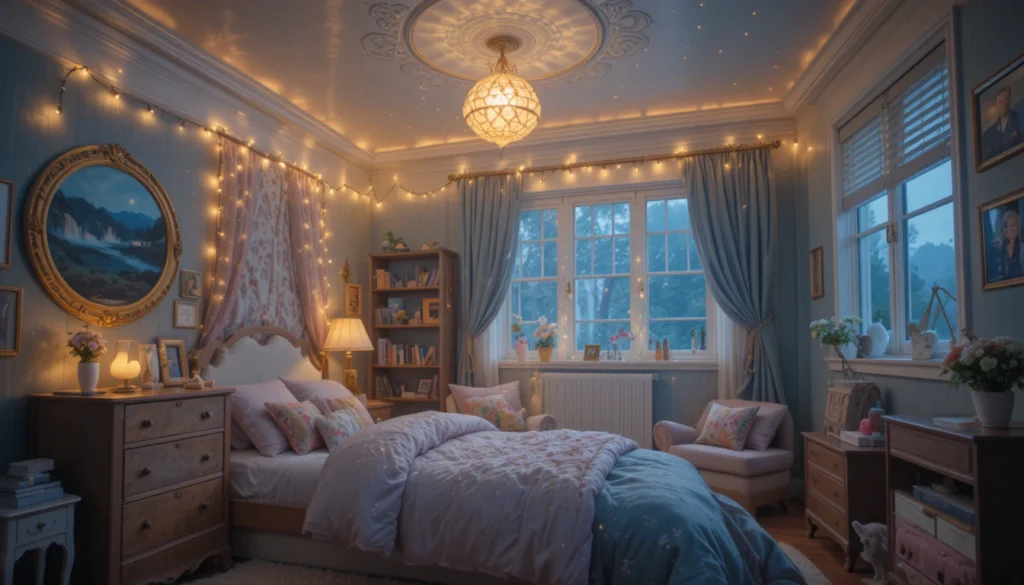
Layered Lighting Setup
Combine ceiling lights, desk lamps, and fairy lights to create a layered glow. Adjustable lighting helps transition from playtime to bedtime with ease.
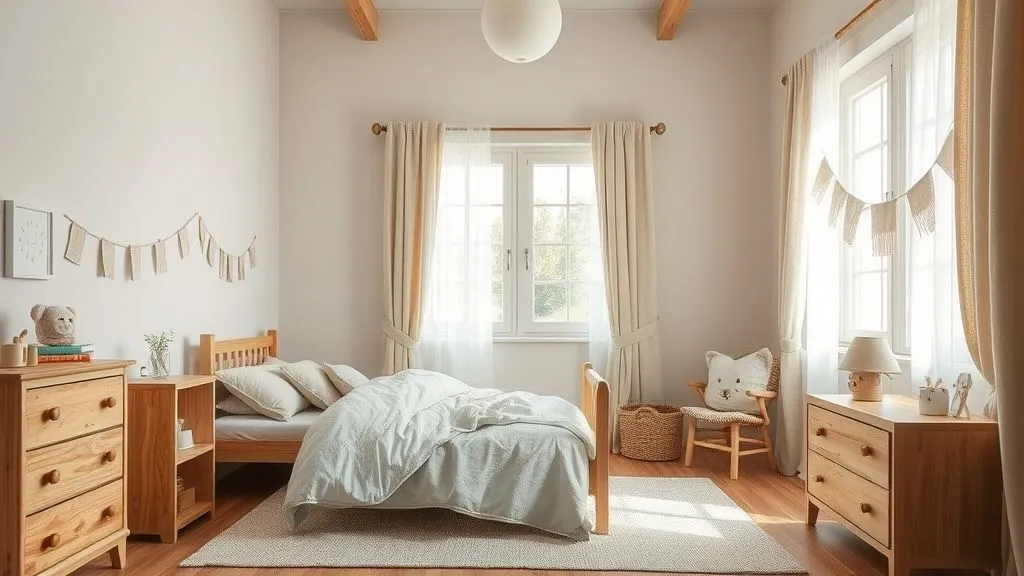
Natural Materials for Warmth
Incorporate natural textures like wood, cotton, and linen. These eco-friendly materials add warmth and comfort while ensuring a healthier, breathable environment for kids.
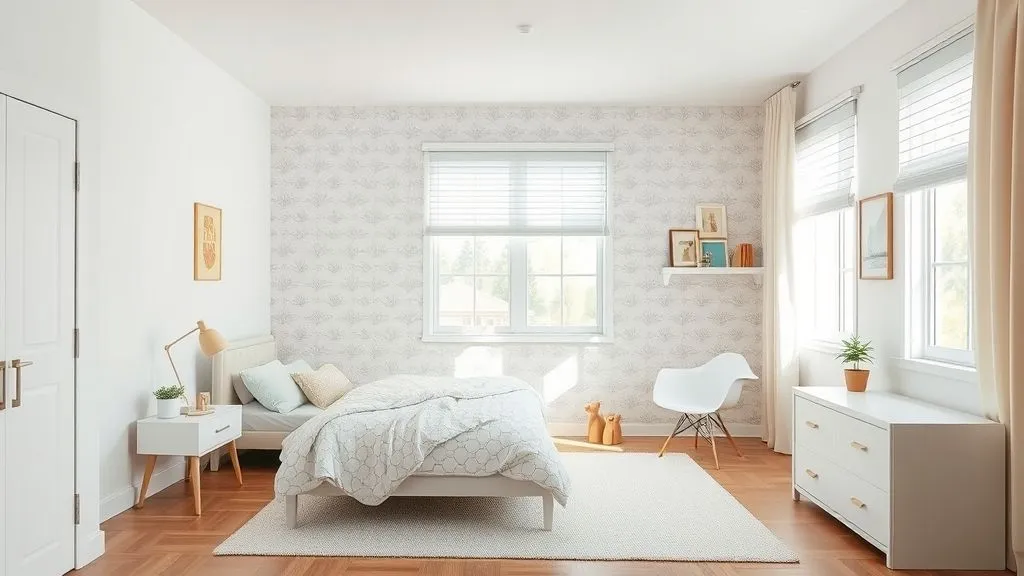
Accent Walls for Style
Choose one wall to highlight with patterned wallpaper or a bold color. It adds depth and personality without overwhelming the room, making it feel more designed and unique.
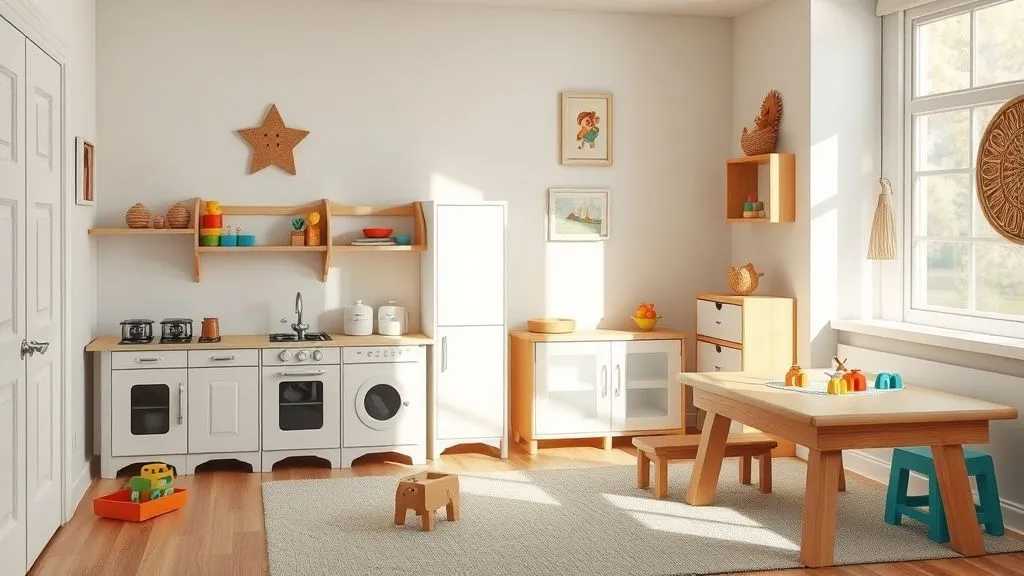
Space for Imaginative Play
Include elements like a mini kitchen, building blocks zone, or small stage area. Play zones promote imagination and help children develop creative thinking skills through everyday fun.
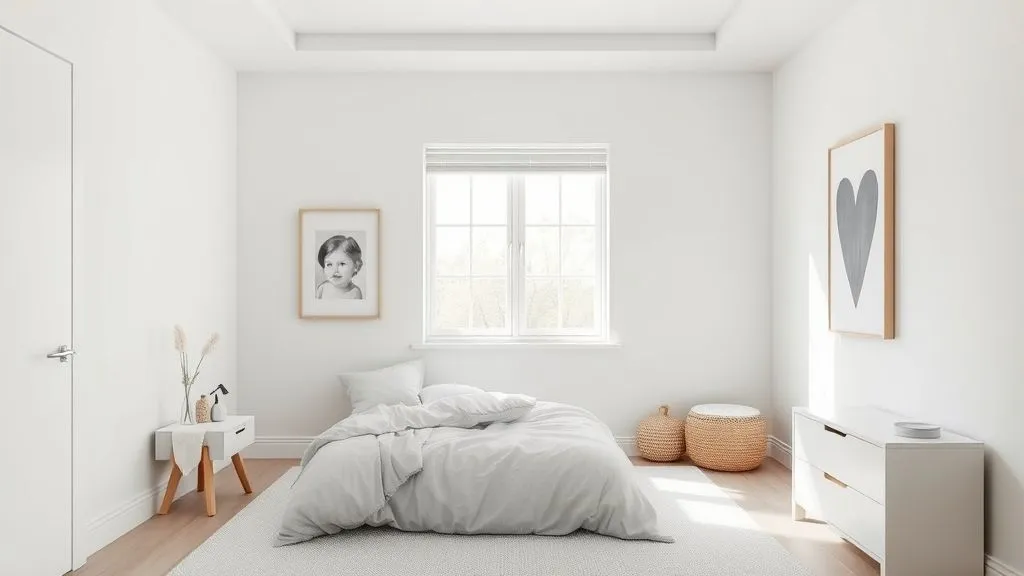
Minimalist Modern Design
A minimalist approach using clean lines and neutral tones keeps the room calm and clutter-free. Add soft textures and one or two standout decor pieces to maintain warmth and character.
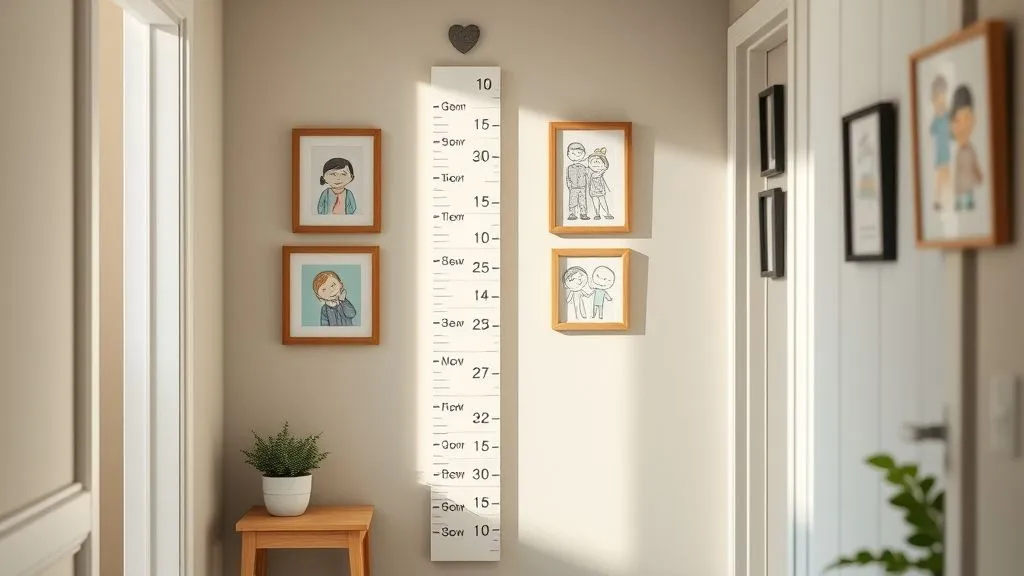
Growth Chart or Memory Wall
Track your child’s growth milestones with a cute wall chart. Combine it with photos or artwork to create a sentimental memory wall that evolves over the years.
FAQs
How can I make my child’s room both stylish and practical?
Focus on storage and versatility. Choose furniture that doubles as storage, keep decor flexible, and use neutral backdrops so the space can evolve easily.
What are the best colors for kids’ rooms?
Soft pastels or warm neutrals work well. Add color through accessories and wall art so you can update the look as your child grows.
How do I keep a kids’ room organized?
Involve your child in cleanup by using labeled bins, open shelves, and storage baskets. Make organization part of their routine.
What lighting works best in a kids’ room?
Use layered lighting: bright ceiling lights for playtime, soft lamps for reading, and warm fairy lights for bedtime ambiance.
Final Thoughts
A beautifully designed kids’ room balances fun, function, and comfort. Whether you lean toward playful themes or minimalist charm, the key is creating a space that reflects your child’s personality while staying organized and adaptable. With thoughtful design choices and smart storage, you can craft a room that inspires imagination and grows along with your child.

